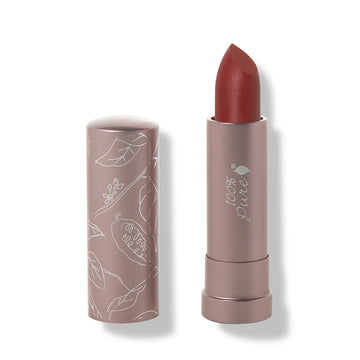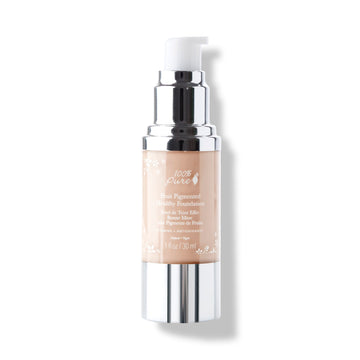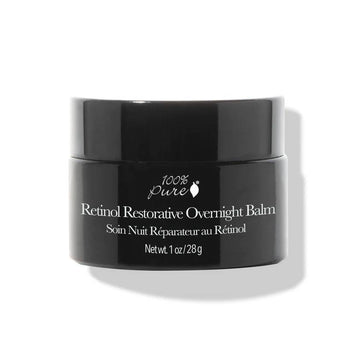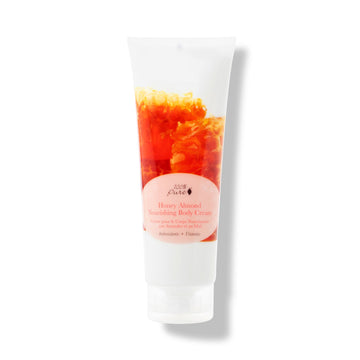Find out how healthy fats in natural skin care can help you achieve more supple, glowing skin
Written by: 100% PURE®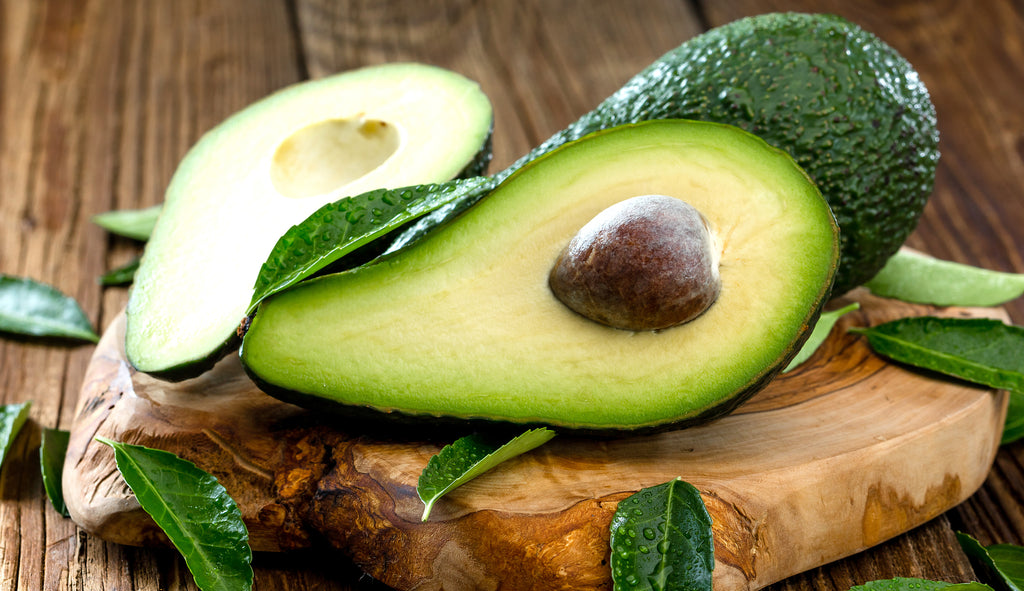
We’re used to being told that fats are bad for us — so the idea that some plant-derived fats can actually benefit the human body can sound counterintuitive. Strange as it may seem, nutritional science supports the idea that a certain amount (and a certain variety) of fat is not only beneficial, but vital, to the health of your body. Keep reading to find out how healthy fats can benefit your skin, which fats to include in your diet, and which natural skin care products contain skin-healthy fats!
A truly natural skin care regimen should start with the foods that you put into your body, and healthy fats are one of the most important biological building blocks out there. According to nutritionists, Omega-3 fatty acids are essential to the health of your cell membranes, literally guarding your skin cells at the most fundamental level.
When the membranes of your cells are well-maintained, important nutrients can penetrate into the cell, while damaging waste products are barred from entering. This translates to healthier skin at the cellular level. The cell membrane also helps skin cells (and other cells!) to retain water; by keeping those membranes bolstered with the right amount of healthy fats, you’ll ensure that your cells retain hydration for longer, leading to plumper, softer, more supple skin.
 Healthy Vs. Unhealthy Fats
Healthy Vs. Unhealthy Fats
While some fats can benefit your skin, others may work against it. Unfortunately, modern diets tend to include the wrong ratio of healthy Omega-3 fats to less essential Omega-6 fats. But what’s the difference between these two types of fatty acids, and why is it so important to get the right ratio?
-
Omega-3 fatty acids are anti-inflammatory. They help to reduce inflammation throughout your body, reducing the severity of acne and calming skin redness, puffiness, and itchiness.
-
Omega-6 fatty acids are inflammatory. Getting too much of these fats can increase the severity of acne, and cause chronic inflammation in your skin--which can, in the long run, contribute to skin damage. When Omega-6 fats are consumed in excess, they can also crowd out the Omega-3s in your body, inhibiting their beneficial effects.
Foods that contain a healthy ratio of Omega-3 to Omega-6 fatty acids include olive oil, avocado, and coconut oil. However, some plant oils — like soybean oil and corn oil — contain an unhealthy amount of Omega-6 fats in comparison to Omega-3s. We recommend keeping track of which plant oils you’re consuming, and steering clear of processed foods that contain unhealthy oils, in order to ensure that you’re getting the right ratio of fats in your diet.
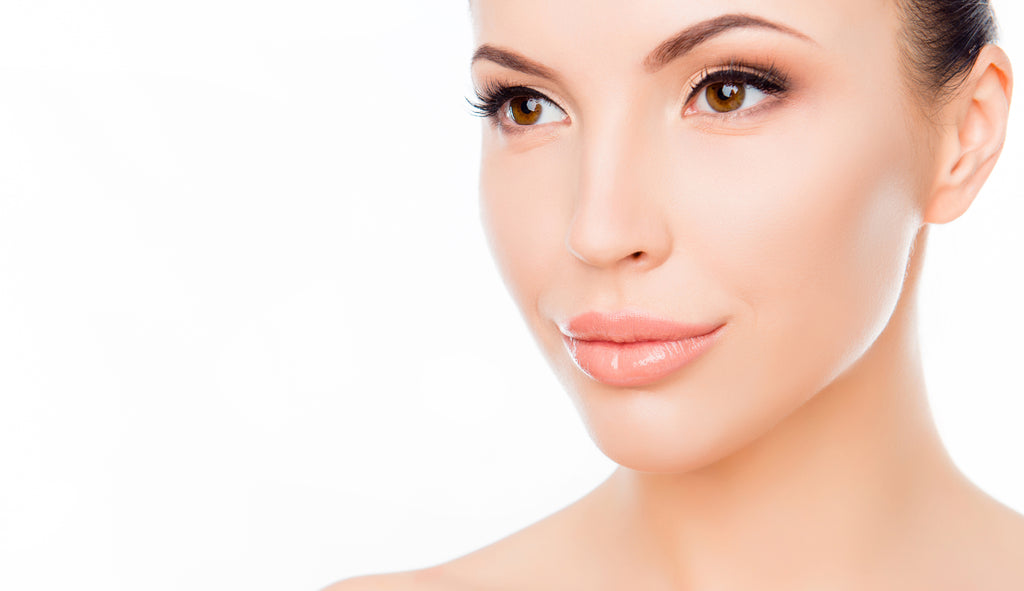 Benefits of Fats for Skin
Benefits of Fats for Skin
Healthy fats aren’t just for eating! Many natural moisturizers, balms, creams, and foundations contain ingredients that are rich in healthy fats. Plant-based butters such as shea butter, cocoa butter, and avocado butter are rich in healthy fats, as are many plant-based oils like avocado oil, walnut oil, and almond oil. When these are used as ingredients in skin care products, these healthy fats can help to bolster your skin’s protective lipid barrier, both locking in hydration and working to protect your skin against environmental damage.
Despite our best intentions for our skin, none of us are perfect. Many of us are guilty of over-exfoliating our skin, or have been guilty of using harsh, chemically-based products on our faces, causing inflammation, irritation, and damage. If you’ve used harsh products on your skin in the past, seeking out natural skin care products that contain healthy fats can be a great way to build your skin’s lipid barrier back up, and restore it to optimum health.
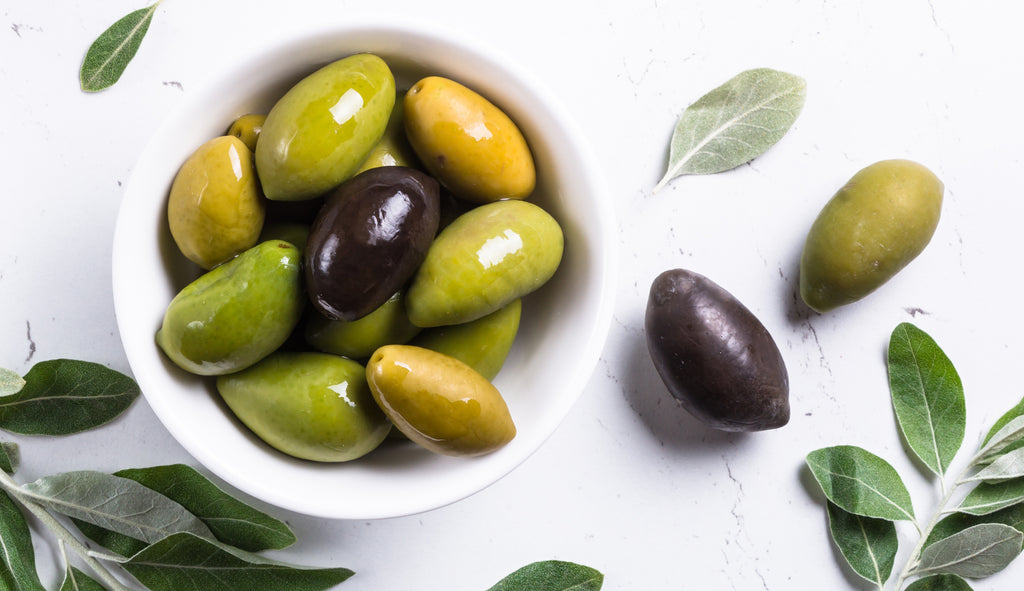 Best Healthy Fats in Skin Care
Best Healthy Fats in Skin Care
Avocado butter and avocado oil are particularly effective skin care ingredients because they’re rich in both healthy fats and antioxidants. Avocado contains lycopene and beta-carotene, two antioxidants that can help to prevent oxidative damage from free radicals.
You can find rich, luxurious avocado butter in many of our products, from our Honey Almond Nourishing Hand Cream to our Fruit Pigmented® Lip Glaze. One of our favorite avocado butter-based products is our Retinol Restorative Overnight Balm. This decadent PM face cream is the ultimate product for mature or photodamaged skin. Along with complexion-restoring retinol, the formula includes a blend of plant butters and oils to condition and heal your skin. It’s the perfect supplement to a healthy lifestyle, and a diet rich in healthy fats!
Cocoa butter is another nutrient-rich ingredient that delivers healthy fats to your skin and hair. In addition to healthy fats, it contains damage-busting flavonoid and polyphenol antioxidants. Thanks to these benefits as well as a dreamy texture and delicious scent, you can find cocoa butter in many of our skin care products and beauty products. Look out for it in our Fruit Pigmented® Healthy Foundation, our Fruit Pigmented® Cocoa Butter Matte Lipstick, and our Fruit Pigmented® Ultra Lengthening Mascara.
Not to be forgotten is olive squalane — a silky smooth, lightweight emollient that’s incredible for moisturizing without any greasy residue. We use this ingredient to prevent moisture loss and boost suppleness in skin by adding it to both our 2nd Skin Foundation and 2nd Skin Concealer.
There’s no need to be afraid of fats, as long as you’re getting the right balance in your diet to maintain healthy internal systems. When it comes to consuming healthy fats, we recommend seeking out high-quality, organic ingredients to make sure that you’re getting the most positive impact from your diet. When it comes to natural skin care, look out for formulas that contain avocado butter, shea butter, and other healthy, plant-based fats!
- Tags: February-2019, Skin Care
We carefully hand-select products based on strict purity standards, and only recommend products we feel meet this criteria. 100% PURE™ may earn a small commission for products purchased through affiliate links.
The information in this article is for educational use, and not intended to substitute professional medical advice, diagnosis, or treatment and should not be used as such.



